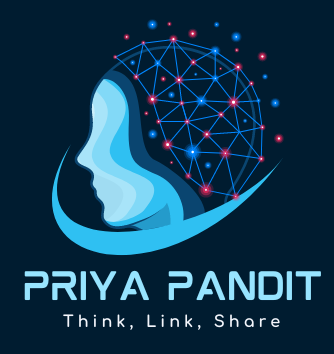
Free Blog Sites List to Start a Blog in 2024
Hey there! So, you’ve decided to start a blog. That’s awesome! But choosing the right platform is super important to your blogging journey. With so many blogging platforms out there, it can feel a bit overwhelming to pick the perfect one. Whether you’re a pro writer or just starting, your chosen platform will make a big difference in your blogging experience and how your blog grows.
In this guide, we’ll explore some of the top blogger websites in 2024. I’ll help you find the best options to start your blogging adventure. From easy-to-use sites to ones with lots of customization, we’ve got it all covered. So, grab a cup of coffee, relax, and let’s find the perfect home for your blog!
Understanding Blogging Platforms
Blogging platforms help you share your thoughts, stories, and ideas online. Everything you require to start, grow, and run your blog is provided. These platforms come with various features that make blogging easy and fun, even if you’re not a tech expert.
Imagine having a blank canvas where you can paint your ideas. That’s what a blogging platform does. Whether you want to write about your travels, share recipes, or talk about tech, these platforms make it simple.
Top Blogging Websites in 2024

1. WordPress
One of the most widely used blogging systems is WordPress.com. It is renowned for being feature-rich and adaptable. With everything you need in one location, it functions similarly to a Swiss Army knife. Plus, the community support is great, so you’re never alone on your blogging journey.
- Features: Customizable themes, plugins, SEO tools, and a user-friendly interface.
- Pros: Easy to use, lots of community support, and great for different needs.
- Cons: Can be expensive for advanced features, and limited customization on the free plan.
2. Blogger
Blogger owned by Google, is the best platform for beginners. It facilitates an easy transition into blogging for beginners, much like training wheels. Blogger is perfect if you want to start blogging without any hassle. It’s free, easy to set up, and works well with other Google services.
- Features: Simple interface, Google integration, and free hosting.
- Pros: Reliable, cost-free, and simple to set up.
- Cons: Limited customization and fewer features compared to other platforms.
3. Wix
Wix is a website builder with blogging functionality. To make an amazing blog, simply drag & drop pieces from this digital playground. Wix stands out with its beautiful templates and easy design interface. If you love a hands-on approach, Wix will feel like a dream.
- Features: Editor with drag-and-drop functionality, editable templates, and SEO
- Pros: Easy to use, great for beginners, and visually appealing templates.
- Cons: Limited scalability and can be expensive.
4. Weebly
Weebly is great for small businesses that want to combine their website and blog in one place. Its e-commerce integration is a plus if you plan to sell products. It’s like the cousin of Wix, providing a drag-and-drop interface with a distinct style all its own.
- Features: Drag-and-drop editor, e-commerce integration, and responsive themes.
- Pros: Easy to use, good for small businesses, and affordable.
- Cons: Limited customization and fewer features than competitors.
5. Medium
Medium is a platform designed for writers and readers, focusing on content rather than customization. It’s like a cozy coffee shop where writers gather to share their stories. Medium is perfect if you want to focus solely on writing without worrying about technical stuff. Its built-in audience means your posts can reach readers quickly.
- Features: Clean interface, built-in audience, and monetization options.
- Pros: Easy to use, great for reaching readers, and no maintenance required.
- Cons: Limited customization and control over your content.
6. Ghost
Ghost is a platform focused on professional publishing. It’s like a sleek, modern office space designed for serious writers and publishers. But it’s not the best choice for beginners due to its technical requirements and cost.
- Features: Fast, secure, and SEO-friendly.
- Pros: Great for serious bloggers, excellent performance, and modern design.
- Cons: Costly and necessitates technical expertise.
7. Squarespace
Squarespace is the go-to platform if you love design and aesthetics. Its beautiful templates can make any blog look professional. It’s like a high-end boutique, offering stunning aesthetics and premium features.
- Features: Beautiful templates, e-commerce capabilities, and built-in analytics.
- Pros: High-quality designs, user-friendly interfaces, and abundant functionality.
- Cons: Expensive and limited third-party integrations.
8. Tumblr
Tumblr is perfect for creatives who want to share quick, engaging posts. Its social networking features facilitate connecting with those who share similar interests. But it’s not the best choice for long-form content or professional blogging.
- Features: Social networking features, multimedia support, and easy sharing.
- Pros: Free, entertaining, and excellent for original content.
- Cons: Limited customization and not suitable for long-form content.
9. HubPages
HubPages is a network of user-generated content. It’s like a collaborative workspace where writers come together to share and earn from their content. HubPages is great for niche bloggers looking to earn from their content. Two major benefits are the monetization choices and the community support.
- Features: Community support, monetization options, and easy publishing.
- Pros: Beneficial for specialized content, financial opportunity, and encouraging community.
- Cons: Limited customization and control over content.
10. Joomla
Joomla is a flexible content management system that can be used for blogging. It’s like a customizable workshop where you can build your blog exactly how you want it. When it comes to extensive functionality and high customization, Joomla is the perfect platform for bloggers.
- Features: Comprehensive user management, adaptable templates, and SEO resources.
- Pros: Strong features, excellent for complex sites, and incredibly versatile.
- Cons: Steeper learning curve and requires maintenance.
Tips for Choosing the Best Blogging Platform

Choosing the right blogging platform can feel like a big decision, but don’t worry – I’m here to help!
1. Ease of Use
Think about how comfortable you are with tech stuff. If you’re just starting, look for a platform that’s super user-friendly. Blogger and WordPress.com are best beginners. They’re like the training wheels of blogging – easy to set up and navigate.
2. Customization Options
Do you like to personalize things? If you want to tweak every little detail, go for something like WordPress.com or Wix. These platforms offer tons of themes and plugins to make your blog truly yours.
3. SEO Capabilities
SEO (Search Engine Optimization) helps your blog get found on Google. Platforms like WordPress.com and Squarespace come with built-in SEO tools that make it easier to optimize your posts and attract more readers.
4. Cost
Consider your budget. Some platforms are free, like Blogger and the basic version of WordPress.com. Others might charge for advanced features or custom domains. Establish your price range and the qualities you absolutely must have.
6. Purpose of Your Blog
What’s your blog about? If you’re writing personal stories, a simple platform like Medium might be perfect. Squarespace or Joomla may provide the expert functionality you require for business blogging.
7. Monetization Options
Planning to make money from your blog? Some platforms, like WordPress.com and HubPages, offer better monetization options than others. Check if the platform supports ads, affiliate marketing, or other ways to earn.
Conclusion
So, there you have it – a guide to help you choose the best blogging platform. Remember, the platform you pick will play a big role in your blogging journey, so take your time and choose one that feels right for you. Whether you’re aiming to share personal stories, start a business blog, or build a niche community, there’s a perfect platform out there waiting for you. Think about what you need, try out a few options, and go with the one that makes you feel excited and comfortable. Don’t worry too much about the specifics; blogging should be enjoyable and fulfilling. Focus on creating amazing content and connecting with your readers.
What do you think? Share your thoughts in the comments! Don’t forget to follow my blog at Priya Pandit for more tips and updates.


